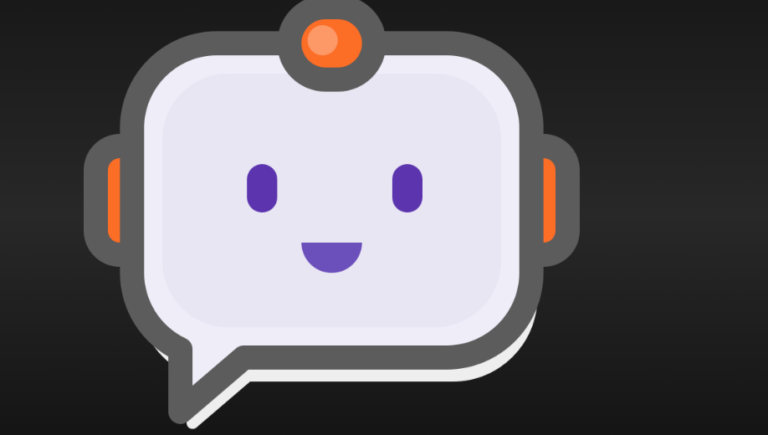Introduction:
On October 28, 2021, Facebook announced that it would be rebranding as “Meta” and shifting its focus to the metaverse, a virtual world where people can interact in real time. As part of this shift, Meta also announced plans to include AI-powered chatbots in its platform, which it says will provide a new way for users to connect with each other. In this blog post, we’ll explore what this means for Meta and its users, as well as the potential benefits and drawbacks of AI-powered chatbots.
Important Points:
- What are AI-powered chatbots?
AI-powered chatbots are virtual assistants that use artificial intelligence to communicate with users through text or voice. They can answer questions, provide information, and perform simple tasks, among other things. Chatbots can be integrated into various platforms, such as messaging apps, social media, and websites, to provide users with an automated way to interact with businesses or other organizations.
- How will Meta use chatbots?
Meta plans to integrate chatbots into its metaverse platform to provide a new way for users to connect with each other. The company says that chatbots will be able to help users find and connect with people who share their interests, provide recommendations for content and experiences, and facilitate conversations between users.
- What are the potential benefits of AI-powered chatbots in Meta?
- Increased connectivity: Chatbots can help users connect with each other more easily and quickly, as they can help users find and initiate conversations with people who share their interests.
- Personalized experiences: AI-powered chatbots can learn from users’ interactions to provide personalized recommendations and experiences, which can enhance the user experience and keep them engaged with the platform.
- Improved customer service: Chatbots can be used to provide customer service and support, which can reduce the workload on human customer service agents and provide faster responses to users.
- What are the potential drawbacks of AI-powered chatbots in Meta?
- Lack of human connection: While chatbots can facilitate connections between users, they can also lack the personal touch and emotional connection that comes with human interaction. This could potentially lead to a less satisfying user experience.
- Privacy concerns: As chatbots learn from user interactions, there may be concerns about how data is collected and used. Users may be uncomfortable with the idea of their conversations being monitored and analyzed by an AI system.
- Technical issues: AI-powered chatbots may not always function as intended, which could lead to frustration and a poor user experience.
FAQ’s :
What is Meta?
Meta, formerly known as Facebook, is a social media and technology company that owns several platforms, including Facebook, Instagram, WhatsApp, and Oculus. It was founded in 2004 by Mark Zuckerberg.
What are AI-powered chatbots?
AI-powered chatbots are computer programs that use artificial intelligence to understand and respond to user queries. They can perform a wide range of tasks, from providing customer service to helping users find information.
How will chatbots be integrated into Meta’s platforms?
Meta plans to integrate chatbots into its platforms to enhance communication and provide users with more personalized experiences. The chatbots will be AI-powered and will be able to understand natural language and respond to user queries.
How will AI-powered chatbots benefit users?
AI-powered chatbots can provide several benefits to users, including faster and more personalized responses to their queries, 24/7 availability, and the ability to perform tasks without the need for human intervention.
Will chatbots replace human customer service representatives?
While chatbots can perform many of the same tasks as human customer service representatives, they are not intended to replace them entirely. Instead, chatbots will work alongside human representatives to provide more efficient and effective customer service.
Pros
- Personalization: AI-powered chatbots can provide users with personalized experiences by understanding their preferences and responding to their queries in a way that matches their language and tone.
- Efficiency: Chatbots can provide faster and more efficient responses to user queries than human customer service representatives, as they can handle multiple requests simultaneously.
- 24/7 availability: Chatbots are available 24/7, which means that users can get assistance whenever they need it, regardless of the time of day.
- Scalability: Chatbots can handle large volumes of requests without the need for additional resources, making them an ideal solution for companies with a high volume of customer service inquiries.
Cons
- Limited human interaction: While chatbots can provide personalized experiences, they cannot replace the human touch entirely. Some users may prefer interacting with human customer service representatives for more complex issues.
- Potential errors: AI-powered chatbots may make mistakes or misunderstand user queries, which can lead to frustration and dissatisfaction.
- Lack of emotional intelligence: Chatbots cannot detect emotions or respond empathetically, which can be a disadvantage when dealing with sensitive issues.
- Cost: While chatbots can save companies money in the long run, there may be significant upfront costs associated with developing and implementing them.
Final Conclusion
The integration of AI-powered chatbots into Meta’s platforms is an exciting development that has the potential to revolutionize the way we communicate and interact online. Chatbots can provide users with personalized experiences, faster responses, and 24/7 availability, making them an ideal solution for companies with a high volume of customer service inquiries. However, there are also some potential drawbacks to using chatbots, such as limited human interaction, potential errors, lack of emotional intelligence, and upfront costs. Overall, it will be interesting to see how chatbots are integrated into Meta’s platforms and how they will change the way we communicate online.







